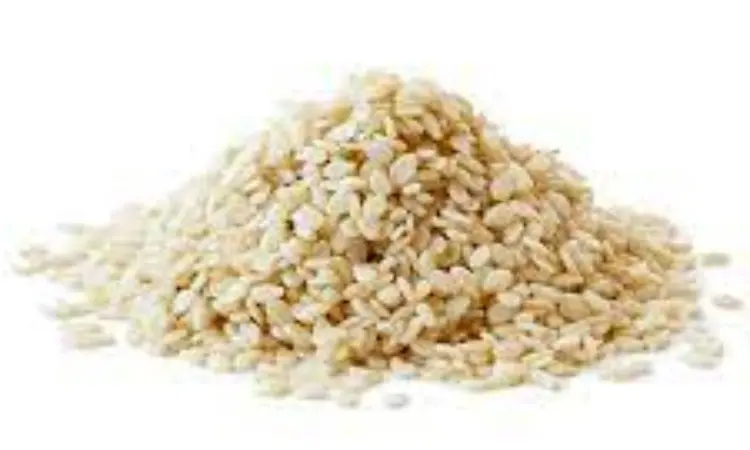- Home
- Medical news & Guidelines
- Anesthesiology
- Cardiology and CTVS
- Critical Care
- Dentistry
- Dermatology
- Diabetes and Endocrinology
- ENT
- Gastroenterology
- Medicine
- Nephrology
- Neurology
- Obstretics-Gynaecology
- Oncology
- Ophthalmology
- Orthopaedics
- Pediatrics-Neonatology
- Psychiatry
- Pulmonology
- Radiology
- Surgery
- Urology
- Laboratory Medicine
- Diet
- Nursing
- Paramedical
- Physiotherapy
- Health news
- Fact Check
- Bone Health Fact Check
- Brain Health Fact Check
- Cancer Related Fact Check
- Child Care Fact Check
- Dental and oral health fact check
- Diabetes and metabolic health fact check
- Diet and Nutrition Fact Check
- Eye and ENT Care Fact Check
- Fitness fact check
- Gut health fact check
- Heart health fact check
- Kidney health fact check
- Medical education fact check
- Men's health fact check
- Respiratory fact check
- Skin and hair care fact check
- Vaccine and Immunization fact check
- Women's health fact check
- AYUSH
- State News
- Andaman and Nicobar Islands
- Andhra Pradesh
- Arunachal Pradesh
- Assam
- Bihar
- Chandigarh
- Chattisgarh
- Dadra and Nagar Haveli
- Daman and Diu
- Delhi
- Goa
- Gujarat
- Haryana
- Himachal Pradesh
- Jammu & Kashmir
- Jharkhand
- Karnataka
- Kerala
- Ladakh
- Lakshadweep
- Madhya Pradesh
- Maharashtra
- Manipur
- Meghalaya
- Mizoram
- Nagaland
- Odisha
- Puducherry
- Punjab
- Rajasthan
- Sikkim
- Tamil Nadu
- Telangana
- Tripura
- Uttar Pradesh
- Uttrakhand
- West Bengal
- Medical Education
- Industry
Intake of sesame seeds and sesame products tied to lower blood sugar: Study

Iran: A recent study in the journal Phytotherapy Research has reported that the consumption of sesame seeds and sesame products has a favorable effect on blood sugar levels but not on insulin resistance. The findings suggest that sesame may be a beneficial agent for human glucose metabolism and can be a part of glucose-lowering diets.
Sesame (Sesamum indicum L.) is a traditional plant-based therapy most commonly used in Asian regions. Sesame seed and its products including oil, flour, and dietary supplement are good sources of lignan compounds (sesamolin, sesamin, sesamol, and episesamin). The medicinal actions of sesame including its anti-inflammatory actions, antioxidant activity, and hypoglycemic effects are contained in these lignans.
Diabetes has become a global health problem in recent years which creates a tremendous economic burden for many countries. Clinical trials that evaluated the hypoglycemic effects of sesame consumption have given conflicting results.
Against the above backdrop, Farzad Shidfar, Department of Nutrition, School of Public Health, Iran University of Medical Sciences, Tehran, Iran, and colleagues aimed to summarize the effect of sesame seeds and their consumption compared to a control group on blood glucose and insulin resistance in human adults in a systematic review and meta-analysis.
For this purpose, the researchers searched the online databases to identify eligible controlled clinical trials up to February 2021. Overall, eight clinical trials were included. Sesame products used in these trials were sesamin, sesame oil, and tahini, and intervention duration varied from 45 days to 9 weeks.
The research showed significant positive effects of sesame and its products on fasting blood glucose FBG (weighted mean difference, WMD: −21.31 mg/dl) and HbA1c (WMD: −0.75) levels but results about fasting serum insulin (WMD: 5.51 μU/ml) and HOMA-IR (WMD: −0.07) were not meaningful.
The authors concluded, "sesame may be considered a beneficial agent for human glucose metabolism and can be a part of glucose-lowering diets."
Reference:
Sohouli, M. H., Haghshenas, N., Hernández-Ruiz, Á., & Shidfar, F. (2022). Consumption of sesame seeds and sesame products has favorable effects on blood glucose levels but not on insulin resistance: A systematic review and meta-analysis of controlled clinical trials. Phytotherapy Research, 1– 9. https://doi.org/10.1002/ptr.7379
Dr Kamal Kant Kohli-MBBS, DTCD- a chest specialist with more than 30 years of practice and a flair for writing clinical articles, Dr Kamal Kant Kohli joined Medical Dialogues as a Chief Editor of Medical News. Besides writing articles, as an editor, he proofreads and verifies all the medical content published on Medical Dialogues including those coming from journals, studies,medical conferences,guidelines etc. Email: drkohli@medicaldialogues.in. Contact no. 011-43720751


